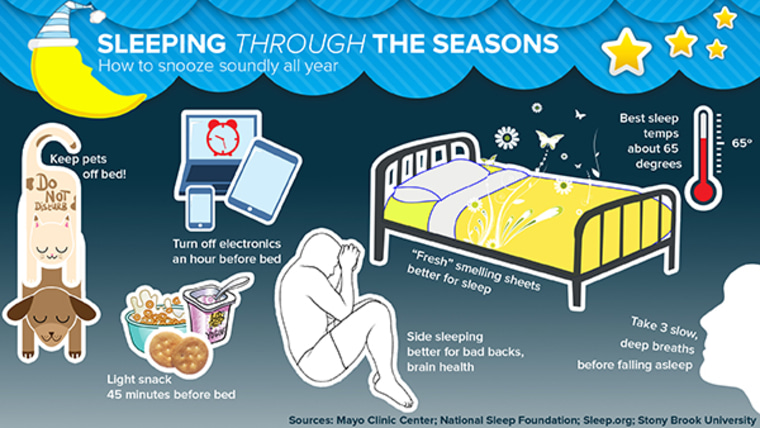This week, you’ve averaged barely five hours of sleep each night. You may be able to catch up on those restless nights by sleeping in this weekend. A new study finds that only two days of make-up sleep reverses the metabolic damage from sleep deprivation — at least in the short term.
“You are going to improve your insulin sensitivity and giving yourself permission to sleep in … prevents your future diabetes risk,” said Josiane Broussard, assistant research professor at the University of Colorado, Boulder, and one of the authors of the study.
Related: One night of bad sleep messes up your metabolism
Broussard and Dr. Esra Tasali, an associate professor of medicine at the University of Chicago, asked 19 healthy, young men to participate in two different sleep studies. For four days, the men stayed in bed for 8.5 hours. During the second phase, they were in bed for 4.5 hours for four days, but had two recovery days. On the first recovery day, they stayed in bed for 12 hours and could sleep as much as they wanted; on the second they stayed in bed for 10 hours and could sleep as much as they wanted.
Broussard and Tasali tested the participants’ blood sugar every day.
When the men were sleep deprived their insulin sensitivity — the ability to regulate blood sugar — decreased by 23 percent, increasing their diabetes risk by 16 percent. Yet, after two days of make-up sleep, where they averaged about 9.5 hours of sleep, they returned to normal, healthy levels.
“The body is adaptive,” Tasali said. “If you were to catch up on sleep, a good amount of sleep, an average of 10 hours of sleep, you can go back to baseline and reduce your risk.”
Dr. Harneet Walia, who did not participate in the study, said it provides exciting results that make-up sleep can reverse metabolic damage, but warned that the results provide an incomplete picture.
“This was a short-term study and often people are chronically sleep deprived,” said the sleep medicine doctor at the Center for Sleep Disorders in the Neurological Institute at Cleveland Clinic. “We still don’t know whether the chronic effects [of sleep deprivation] can be reversed with extra sleep on the weekend.”
Related: Want better sleep? Bring the pet to bed with you!
Dr. Raj Dasgupta, who also was not involved in the study, agreed with Walia. While he praised the results because it encourages people to get more sleep, he warned that the findings may only apply to young, health men.
“You cannot infer what could be happening with the female population,” said the assistant professor of clinical medicine at Keck School of Medicine at the University of Southern California and a fellow of the American Academy of Sleep Medicine.
He also said that it would be valuable to study the effects of make-up sleep in a larger population and overweight people, who are at greater risk for diabetes. And, it fails to look at how make-up sleep improves the cognitive deficits, such as confusion, irritability, and memory problems, related to sleep deprivation.
But overall, Dasgupta applauded the study.
“Any study that wants to encourage people to get more sleep … is a good study.”
